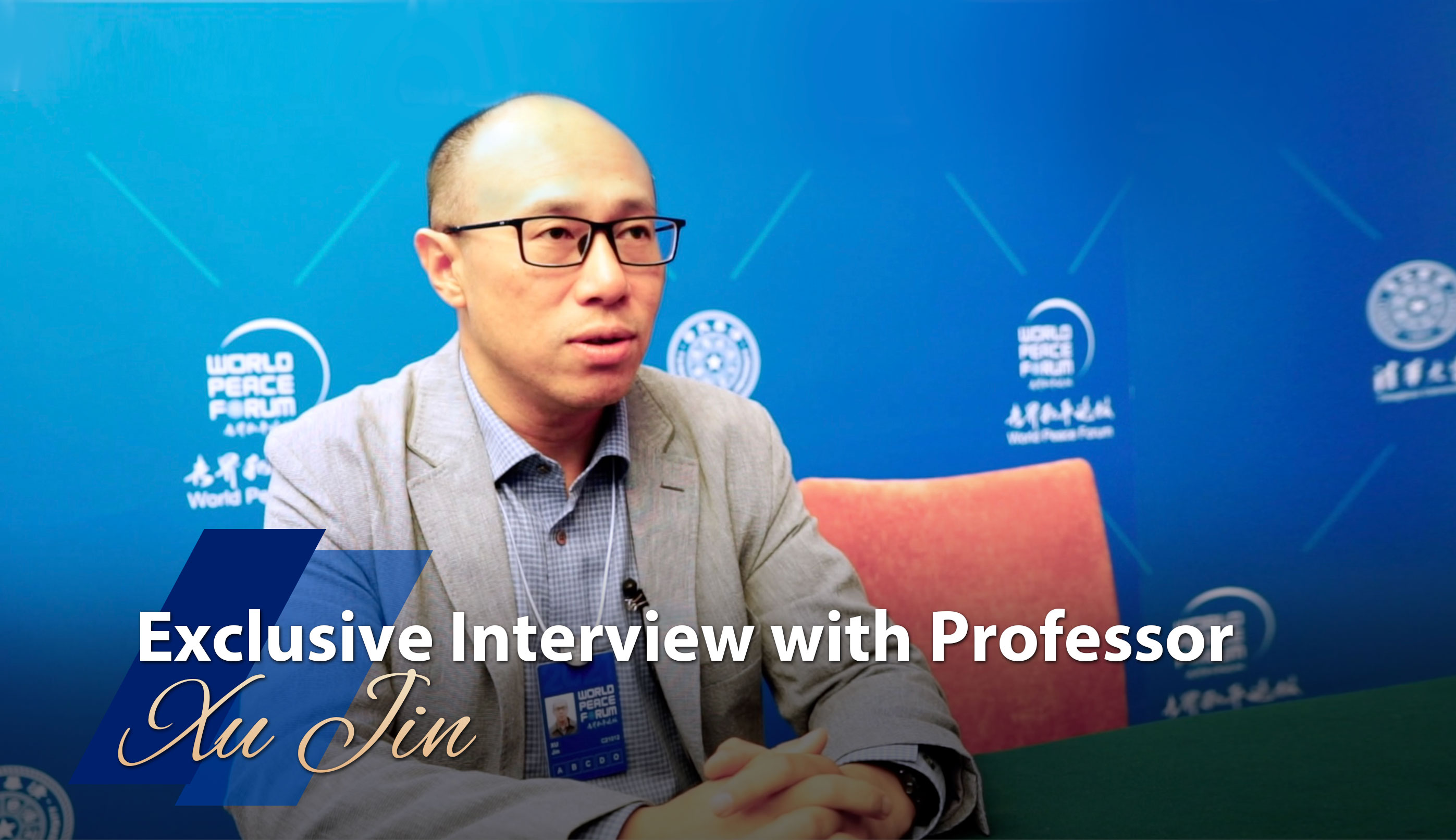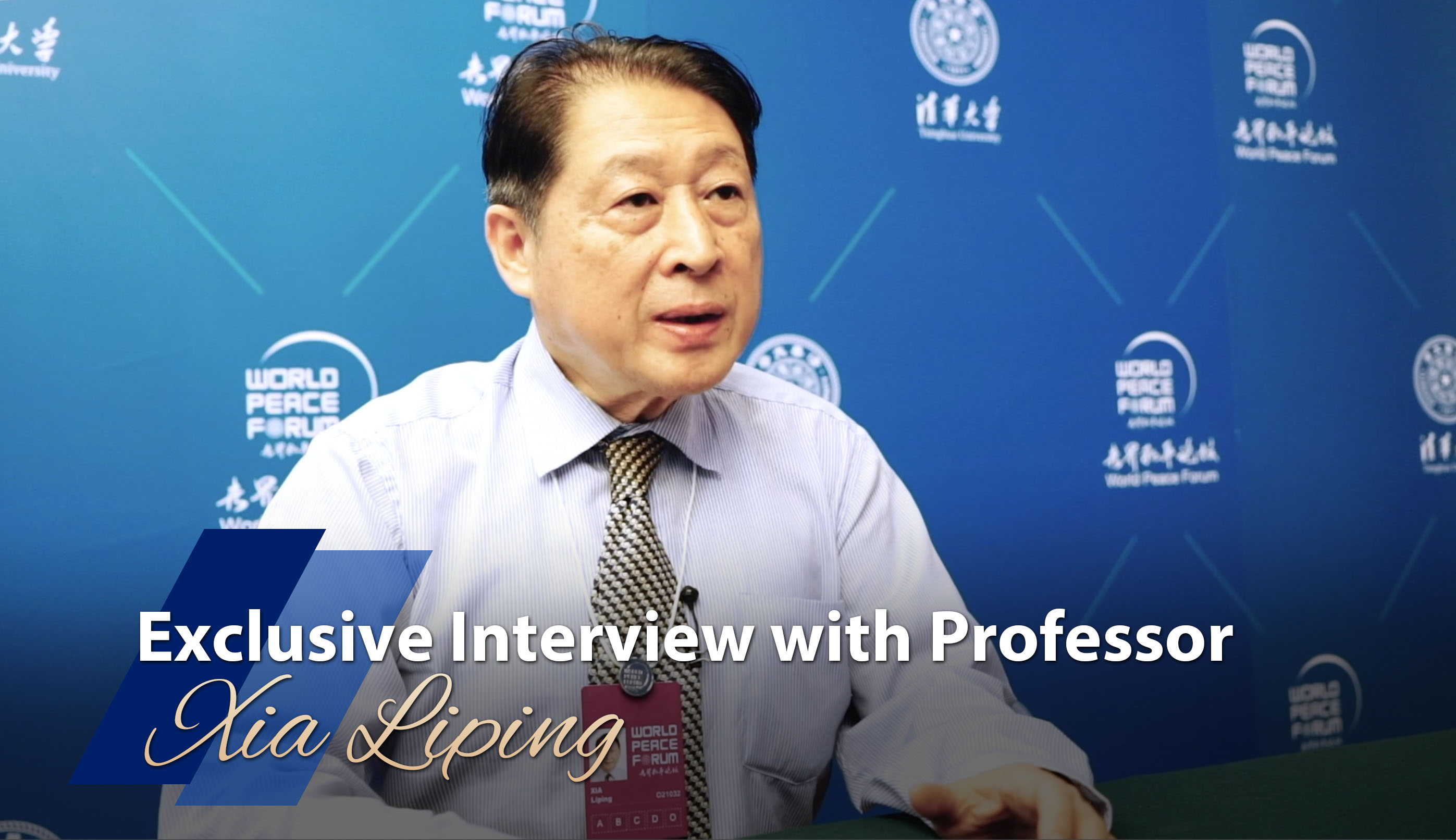
The 9th World Peace Forum takes place at Tsinghua University, July 3, 2021. /Xinhua
The 9th World Peace Forum takes place at Tsinghua University, July 3, 2021. /Xinhua
At Tuesday's Communist Party of China (CPC) and World Political Parties Summit, Xi Jinping, general secretary of the CPC Central Committee and Chinese president warned the world to be cautious about unilateral actions taken in the name of multilateralism and called on international community to uphold multilateralism based on the rules set up by all countries together.
Disputes on multilateralism have been a long-term topic. Although most countries in the world claim to uphold multilateralism, they spar over the definition and more importantly, how to uphold the concept.
The 9th World Peace Forum brought the discussion to the table. Themed "International Security Cooperation in the Post-Pandemic Era: Upholding and Practicing Multilateralism," the three-day forum intends to find a way to uphold multilateralism amid global challenges such as the COVID-19 pandemic, climate change and the rise of unilateralism.
Based on the topic, CGTN talks to several experts and scholars on international relations to share their views on the current international order and how to uphold multilateralism in the post-pandemic era.
Read more:
China calls on world political parties to jointly address global challenges
Exclusive interview with Yan Xuetong: Embracing true multilateralism
Upholding and Practicing Multilateralism
The multilateralism China upholds includes building and maintaining a cooperative, peaceful and stable international order under the UN Charter. The discussion on the level of true or false and inclusive or exclusive multilateralism is far from enough, said Liu Jiangyong, professor of international relations at the Institute of International Studies at Tsinghua University.
"Multilateralism could also be divided into peaceful and violent ones," Liu said. "China has been always on the side of the peaceful one and the organizations we have joined are using peaceful ways to promote multilateralism."
When talking about the reason why the world needs multilateralism, he said that global affairs should be managed by all the countries while regional problems should be settled based on "the principle of equal-footed dialogue, peaceful settlement, and consultation" instead of "being interfered with by the country claiming itself as a global sheriff."
The world is facing much more diversified threats, including non-traditional security factors like climate change, poverty and COVID-19. Compared with some violent methods and military strength, low-cost ways can facilitate sustainable and stable peace and solve problems, Liu said.
02:17

Xu Jin, head of the Department of International Politics Theory at the Chinese Academy of Social Sciences said that divisions over multilateralism among superpowers make the process more difficult and could result in regional problems.
Professor Xia Liping, dean of the School of Political Science & International Relations at Tongji University, expects China, as a rising power, to play a greater role on global issues like COVID-19, poverty, and climate change, to try to forge a global consensus on multilateralism under the UN-centered international system.
The opening of the peace forum, only two days after the grand Beijing gathering of the centenary of the Communist Party of China (CPC), not only shows the country's willingness to communicate with the world but also reflects that China's global engagement in the fight against COVID-19 has been recognized by the world, Liu said.
China-U.S. relations: A bilateral relationship that leads multilateral relations
Although the major topic of the forum is on multilateralism, the bilateral relationship between China and the U.S. was unarguably one of the most popular agenda items during the three-day event.
Politicians and experts may disagree on certain topics, but they all agree that the development of the relationship between China and the U.S., the top two economies in the world, is of great importance to international order and global stability.
Xu called the China-U.S. relationship one of the most important in the world as it determines what role multilateralism can play.
The professor believes the development of bilateral ties is of great importance to the smooth running of the current international order and any deterioration may lead to chaos.
Speaking of the ideological differences with China cited by the U.S. under Joe Biden's administration, Xu said they have existed since 1979 when the two countries established diplomatic ties, but relations have gone through a series of ups and downs, suggesting that the disagreements over ideology would not hinder cooperation.
02:08

Xia holds that where ideological differences remain, countries should de-emphasize their influence and focus more on common values as the foundation for cooperation.
Given the profound influence of bilateral relations on international order, calls for cooperation rather than confrontation between China and the U.S. have always been the mainstream voice in the international community.
At the forum, former UN Secretary-General Ban Ki-moon called on the two countries to "put hands on the same desk" and tackle global challenges jointly since no one can manage alone or stand aloof.
He is glad to see Biden's government overturned the "America First" policies and returned to the Paris Agreement, and suggested the two countries cooperate on areas such as climate change.
Liu echoed Ban's opinion and noted that cooperation on climate change is an important step to developing friendly relations between the two sides.
He hopes the two countries will cooperate in the UN-centered international system and work jointly to build and safeguard the international order that benefits world peace and development.

